
Unlock the Editor’s Digest for free
Roula Khalaf, Editor of the FT, selects her favourite stories in this weekly newsletter.
The world-weary regulars at Samsara, a super-luxe Himalayan yoga retreat, rely upon its personalised programme of meditation, massage and yoga to rebalance their privileged existence. Death In The Air by Ram Murali (Atlantic £16.99) is stuffed with references to high-end watches and jewellery — and a missing Cartier timepiece and set of earrings (“Magic Alhambras, made of pavé diamonds and turquoise”) provide valuable clues in this clever high-altitude murder mystery.
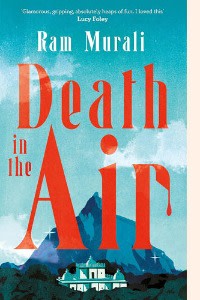
Ro Krishna, the lawyer protagonist, so valued a customer of Air France that the pilots leave the cockpit to greet him personally, has work-related wounds of his own to lick as he checks in. When a wealthy guest meets a violent end, the elegant proprietress enlists his help to find the perpetrator before everyone else gets spooked. Ro takes a calm, not to say karmic, approach to crime-solving, given that he believes nothing happens without God’s say-so — even murder. He also consults a spirit guide via a pendulum. This is not so much a whodunnit as a woo-dunnit.
It’s hard to pick out suspects when guests and staff at Samsara wear virtually identical kurta pyjamas, but Ro has unusual methods when it comes to digging up the truth, and a willingness on occasion to give karma a helping hand. Samsara’s heady blend of decadence and spirituality is deliciously evoked, making the lapses in tone — two pages of jokes about the Challenger disaster, for example — even more peculiar. And final revelations about Ro himself turn him from dashing sleuth into something much darker. Why his own karma remains unaffected is the biggest mystery of all.
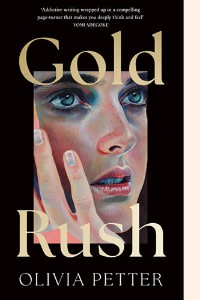
Despite all the freebies and fun, the strenuous life of the media insider is no more enjoyable according to Gold Rush by Olivia Petter (Fourth Estate £16.99). Rose, working in marketing for a Condé Nast-adjacent London magazine empire, is astonished to hook up with a lusted-after singer she accompanies to a launch. Milo Jax, charming, rich and cool, seems bent on friendship, but a night at his pad ends in disorientation, injury and hazy memories of assault. But what can Rose do when an alliance with Milo could help her career? As she heads for a crack-up, an encounter with Clara, a troubled influencer, adds another layer to Petter’s examination of the inner workings of fame. Her insider knowledge of a giddy, gilded but grubby world tingles with menace.
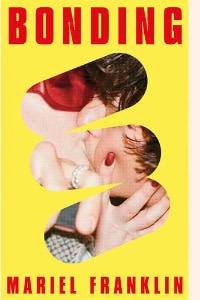
Mariel Franklin’s Bonding (Picador £16.99) is also London-set and much concerned with modern dating etiquette, consent and abuse. Bisexual Mary embarks on a relationship with Tom, an enigmatic chemist working on a drug to treat depression, the modern epidemic. But Eudaxa also dramatically diminishes sexual restraint. Mary has just accepted a job from her dazzling old flame Lara at a start-up ethical dating app, which aims to promote healthy sexual experimentation alongside respect and empathy. But just as Mary begins to find release with Tom, she wonders if in future love will simply become a combination of algorithms and chemicals. Franklin’s agile, thought-provoking tale throbs with ideas, fears and cautions.
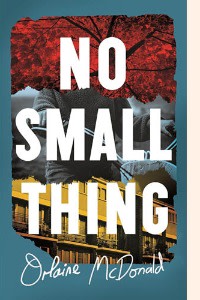
The action of Orlaine McDonald’s No Small Thing (Serpent’s Tail £16.99) takes place in a part of London that Mary, Clara and Rose would hurry through: no free designer handbags and pricey face serums here. Livia, Mickey and Summer are grandmother, mother and daughter eking out an angry existence on a south London housing estate, secretly watched over by Earl, a Rastafarian balcony-gardener, from his eyrie in a high-rise block. Years ago Livia walked out on her husband, relinquishing Mickey; now her bitterly resentful daughter and rebellious granddaughter have turned up, homeless. The novel spans a year in their entwined lives, before one of them, we’re told at the start, will throw herself from the roof.
All are to be pitied: Livia, lost and lonely, burdened by past failures; Mickey, unmothered and unmotherly; and Summer, disruptive at school. Impressively, McDonald never attempts special pleading or excusing, instead painting a bleak but toughly empathetic picture of their trapped, chaotic lives.
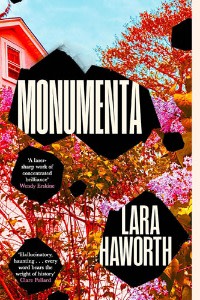
Familial trauma is handled more lightly in Lara Haworth’s novella Monumenta (Canongate £12.97). Widowed Olga has lived for decades in a leafy Belgrade suburb. Sublimely self-possessed, she doesn’t flinch at the news that her home is to be repurposed as a memorial to a massacre. Which one, she drily enquires. Olga must contend with three zany architects, a posse of government officials, her two unhappy adult children, and a ghostly husband who may or may not be buried in the garden. Beneath the whimsy lurk serious issues about statues, official histories, and which parts of our past we seek to paper over.
Join our online book group on Facebook at FT Books Café and subscribe to our podcast Life and Art wherever you listen